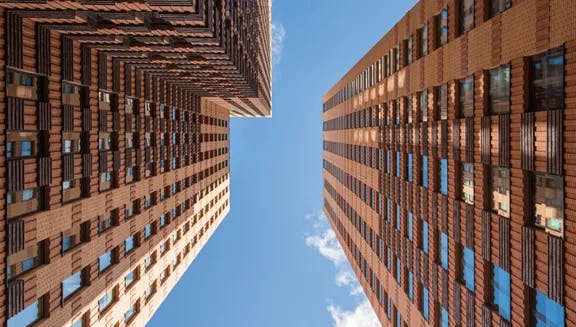
Fashion for Good's strategic shift to enhance scalable sustainable solutions
FFG re-evaluates its place in the sustainable fashion world
Fashion for Good is closing the doors to its much-loved Amsterdam Museum as of 5 June. The venue, which has welcomed 100,000 visitors since its inauguration in 2018, will undergo transformation into an extended co-working space for local sustainable fashion companies as part of the company's initiatives.
This move aims to streamline operations and prioritise the development of more impactful and scalable sustainable fashion solutions. The company recently unveiled its five-year strategy, outlining a shift away from consumer-facing initiatives. Instead, the focus will be solely on industry services, aiming to scale sustainability solutions effectively.
To facilitate implementation, FFG and its partners have chosen approximately 30 innovators who will receive added support starting this year. The new strategy will also highlight FFG's continued collaboration with suppliers. In 2023, FFG directed its attention to suppliers, inaugurating the Strategic Supplier Initiative (SSI) to facilitate the broader adoption of the new strategy.

Making a more significant sustainable impact
FFG is shifting its focus exclusively to the Global Innovation Programme, where around 3,000 innovators have undergone assessment. This program serves as a crucial connection linking innovators with partners, projects, and suppliers to scale their solutions. Refined over the past five years, the program will continue in its current format in 2024 and beyond. Alumni from the program remain active within the FFG ecosystem, participating in projects focused on chemical recycling and prototyping bio-based polyester.
The growing climate crisis, combined with upcoming climate targets and regulations, intensifies the FFG team's urgency to drive positive changes in the fashion industry. Amsterdam is a standout location for companies aiming to grow better and make a positive environmental impact through initiatives like Lena, the clothing library, and United Repair Centre, which offer an alternative to purchasing new items by providing clothing repair services for various brands. These initiatives, combined with FFG, contribute significantly to combating fast fashion, making a positive environmental impact at both local and global levels.
Related articles

G-Star RAW unveils new potential of greenhouse-grown cotton

Fashion for Good announce new initiative ‘’Closing the Footwear Loop’’

Amsterdam takes the lead in the 2023 Chamber of Commerce Innovation Top 100

Amsterdam first EU capital to embrace the Plant Based Treaty

Amsterdam's Fashion for Good highlights circular fashion progress in new report

Fashion for Good and Spring Lane Capital unveil sustainable fashion's future

Avantium and UvA come together to research solution for recycling polycotton

Amsterdam's Fashion for Good launches new footwear sustainability initiative

Invest-NL funds €5M for climate technologies and circular initiatives

